The key findings
- A holistic approach is proving increasingly important. For companies, but in terms of customers' mindset too. Combining nutrition, health and beauty is the key to long-term success. The right balance of these elements has long been an integral part of Korean culture.
- High estimated market value opens up huge potential for companies. By 2028, the wellbeing market is set to be worth USD 9 trillion worldwide, while the value of the global collagen market is estimated to reach USD 16 billion by 2030.
- Sustainability is an increasingly important issue for customers. Animal-free products do not just represent a lifestyle choice, but are often more functional than conventional alternatives, both in terms of nutrition and ingredients for cosmetics and pharmaceuticals.
- Self-optimisation is very much on trend which means ever greater personalisation of products and services across all sectors. Scalability is still proving challenging at the moment.
The nutrition, health and beauty sectors had been stuck in a silo mentality for a long time, but convergence has been taking place over recent years in a shift towards holistic wellbeing. This means wellness is becoming a lifestyle and health a long-term goal. The market presents huge potential for companies. By 2023, the global market was already worth USD 6.3 trillion and is expected to grow strongly at a rate of 7.3% to reach USD 9 trillion by 2028 (1). The drivers behind this market growth include new technological possibilities. Wearables and gamification approaches support personal self-optimisation, while hyper-personalised products and services meet individual needs.
Health – both inside and out
Toby Clark from market research firm Mintel has also observed greater awareness of health where nutrition is playing a key role. Over 900 million people worldwide are overweight (2). 38% of those affected in Germany who are already tackling weight loss were already using or interested in using GLP1 drugs to shed kilos (3). However, Clark sees far greater potential for companies in other areas. For example, proteins or dietary fibres. While the emphasis was previously on cutting down on unhealthy foods, such as sugar and fat, there is now a shift towards a diet enriched by good nutrients.
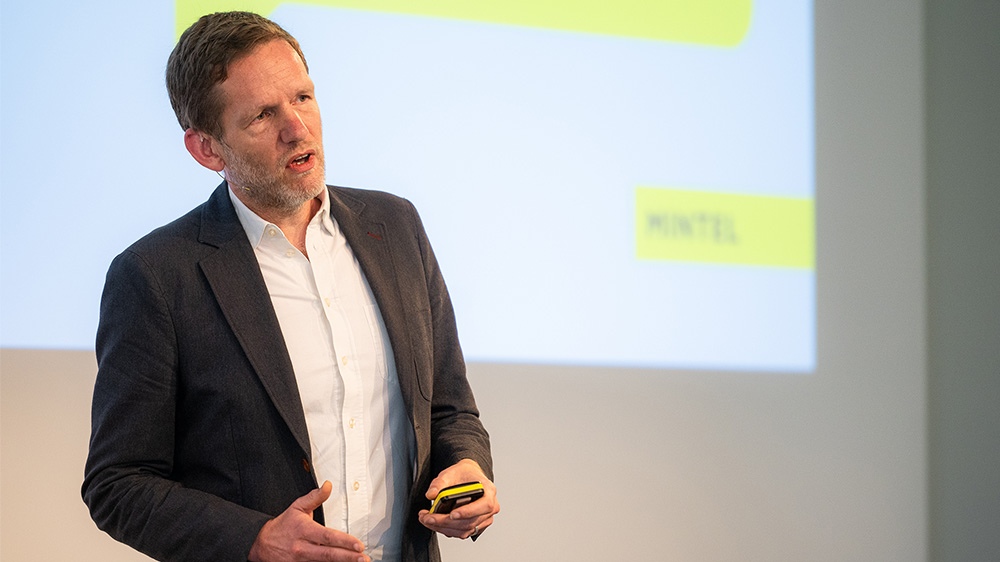
In other words, eating more of the food that is good for us. But what is that exactly? Nora Khaldi, founder and CEO of Nuritas, explains that many of the ingredients in our food, beauty products and medicines are very old and no longer meet our needs. Wearables are providing more and more specific sizing and personalisation, but nutrition is lagging well behind. Using an AI tool, she succeeded in decoding peptides - short-chain proteins that play a crucial role in various biological processes in the human body. This AI tool analyses billions of peptides as part of a pre-selection process. The findings are then validated in the laboratory. For example, her team discovered the peptide PeptiStrong, found in faba beans, which improves the muscle-building performance of proteins. Key consideration: only clinically proven solutions will build genuine trust.
In the podium discussion, Leonie Bode from the longevity clinic AYUN and Julia Hoffmann of Biogena exchanged views on longevity and dietary supplements. Both underlined the importance of scientific evidence that proves products and treatments are effective. This is because demand for performance enhancement and self-optimisation – and in turn longevity treatments and solutions – is constantly growing. For example, in the wellness suites of hotels, but also in the areas of nutritional advice and personal training. Both personalisation and a holistic approach are growing customer requirements – for example, individual beauty products are being combined with specially tailored nutritional supplements and red light therapy.
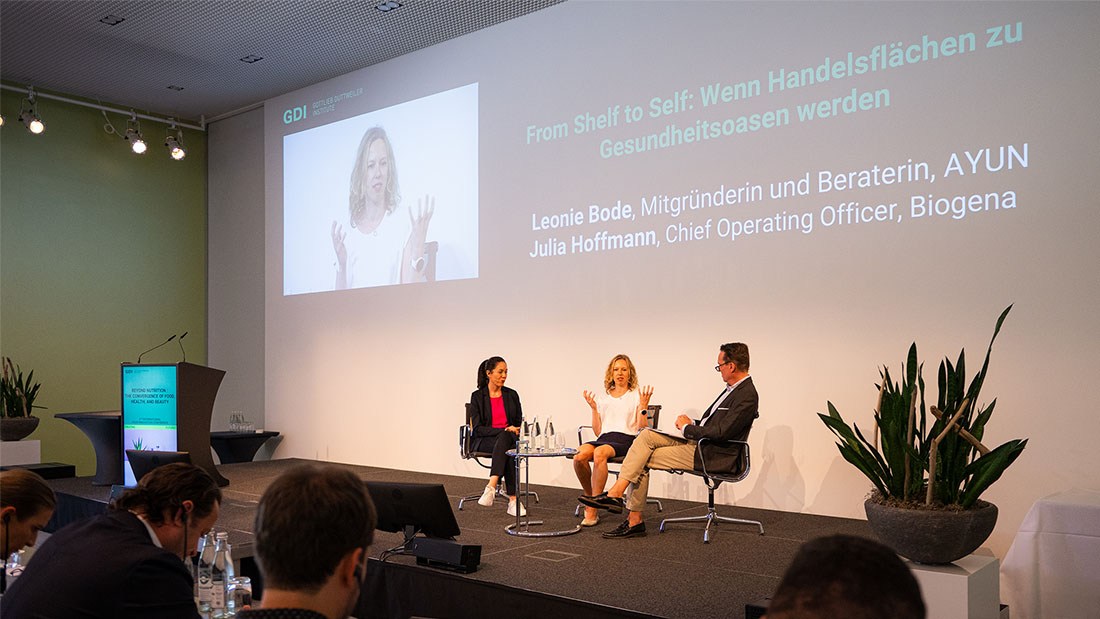
Eternal youth?
"Ageing is the root cause of age-related diseases - so why don't we tackle the cause instead of just treating the conditions?" asks the Harvard professor David Sinclair at the start of his keynote. He believes ageing should be interpreted as a loss of information. He likens it to a scratched CD that still contains the music but can no longer be played. Through various experiments, he and his team have shown how intervention in the epigenome can not only halt the ageing process but even reverse it. However, he doesn't have a wonder drug either. "Your DNA is not your destiny." Around 85% of our biological age is based on a healthy lifestyle: no sugar, no snacks, a vegan diet, no alcohol and plenty of exercise. In terms of longevity too, several factors contribute to maintaining high quality of life into old age. As a first step, Sinclair advises a healthy diet combined with sufficient exercise. But other factors slow down the ageing process too. For example, young people should spend less time in the sun to protect their skin and avoid listening to loud music to protect their ears. As the metabolism begins to slow down around the age of 30, he recommends only eating within a six-hour window each day. Storing stem cells that can be used in old age is also well worth considering. Finally, a strong social network is also conducive to good health: "One of the best ways to live longer is to have a reliable partner - that is scientifically proven", indicates Sinclair .
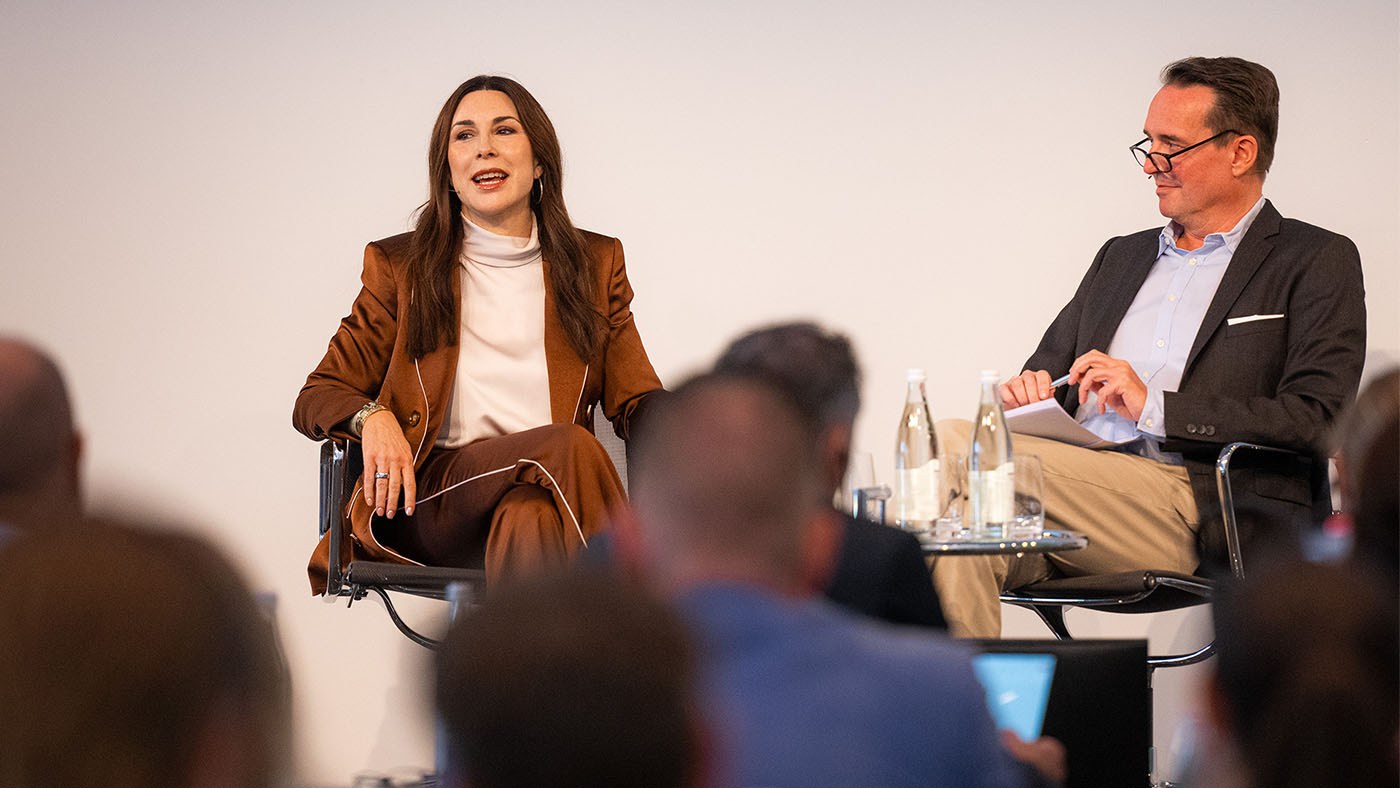
Besides good health, outward appearance is also very important to many people. Which again is linked to nutrition. "The smoothie or bacon you had for breakfast today will show on your skin in a few days' time," explains Judith Williams, an investor and founder of Judith Williams Cosmetics, who believes beauty and nutrition are closely linked. During the podium discussion, she underlined the tremendous potential of personalisation, which, although still in its infancy, has not yet made much headway in the beauty sector yet. Everyone's skin microbiome is as individual as their fingerprint. She also believes that customers are thinking more holistically and realising how nutrition, health and beauty are interconnected. There is growing demand for sustainability and vegan products too.
Heading into the future with biotechnology
Barley is supporting the production and propagation of human and animal growth factors. Using plants for the production of special proteins is also known as molecular farming, explains Björn Örvar from ORF Genetics. This company's high-purity active ingredients are used in stem cell technology, skin care, biopharmaceuticals and the production of cultured meat. Through cultivation in barley, the Icelandic company produces high-grade ingredients at low cost, thereby achieving a high level of scalability.
Erfahren Sie mehr über das Zeitalter der Biologie
Eine Studie des GDI zeigt, wie sich die Beziehung zwischen Mensch, Natur und Technik verändert.
Learn more about the age of biology
A GDI study shows how the relationship between humans, nature and technology is changing.
Michalyn Andrews of Provenance Bio is also focusing on a plant-based approach. Having started out in the fashion industry, the company founder produces animal-free, functional collagen. This substance is used in a vast range of areas. Andrews estimates its global market potential at USD 16 billion by 2030 (4). The benefits it offers compared to conventional collagen from slaughterhouse waste are much higher levels of precision and improved functionality. Animal-free products are not just nice-to-have items, but a technical necessity, as the entrepreneur explains: "We think the future is animal-free."
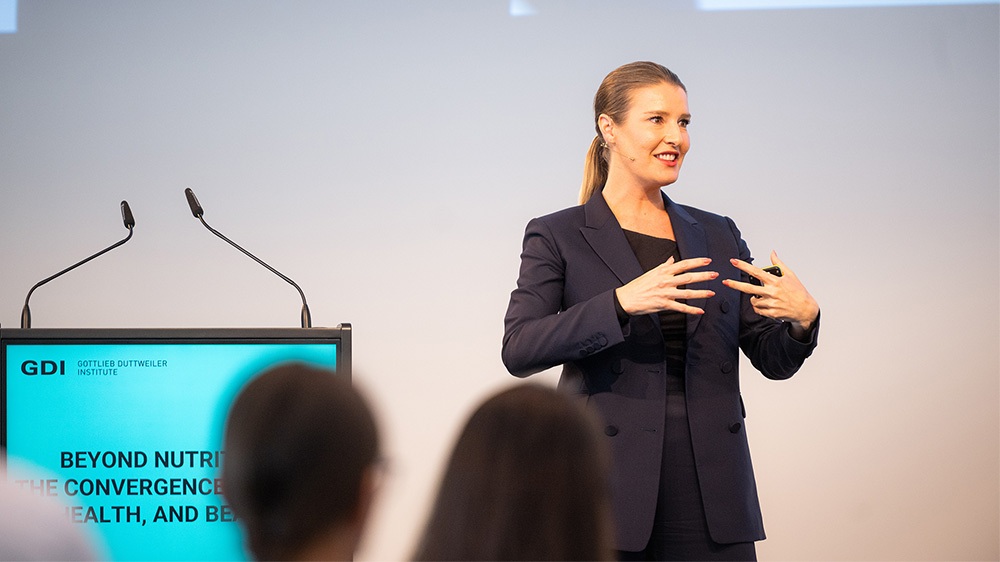
Yet that was actually true in the past too. The reason we eat meat at all is due to microorganisms, as Cyrille Pauthenier from Abolis Biotechnologies illustrates through a look at the past. As descendants of apes, the human digestive tract was not designed for raw meat. Before the discovery of fire, meat could only be consumed as carrion after the tissue had been decomposed by bacteria. Today, over 77% of agricultural land is used for meat production, which only provides 18% of calorie consumption. Pauthenier believes there is an urgent need for an inexpensive meat substitute with high protein content that is both tasty and packed with healthy nutrients. "We need to use microorganisms once again to return to a vegetarian diet. It's the only way forward."
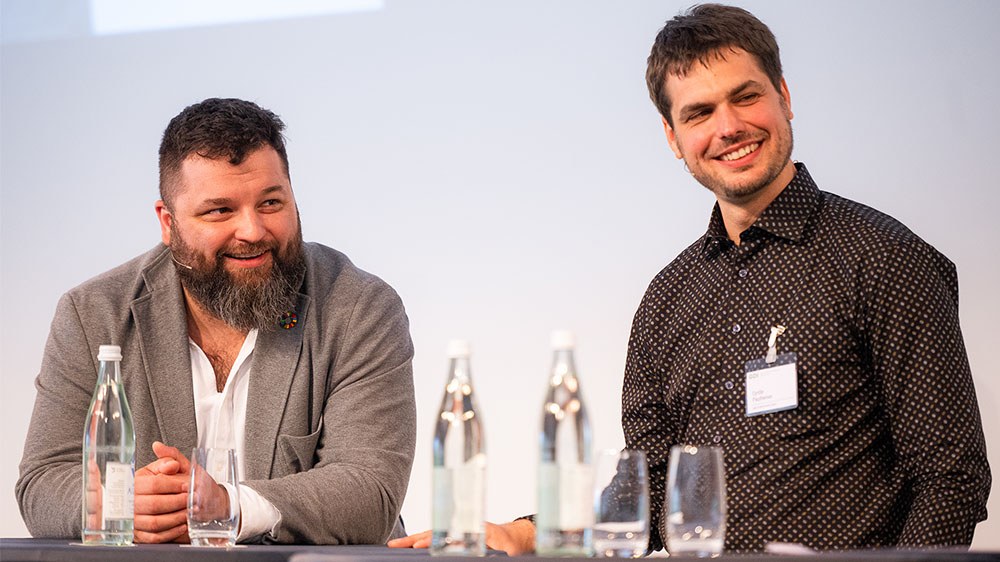
Sustainability is not just about being animal-free. Through his company EcoBean, Marcin Koziorowski aims to create a circular economy in coffee production, as coffee ranks fifth, after meat and milk, in terms of greenhouse gas emissions. To double the coffee chain's value, EcoBean extracts raw materials, such as proteins, cellulose and fats, from coffee grounds for use in cosmetics, pharmaceuticals, packaging and other industries. "We generate 9,000 euros in revenue from one tonne of coffee grounds, cutting CO2 emissions by three tonnes in the process," reveals Koziorowski.
A holistic approach embedded in cultural values
Korean philosophy is based on the desire to live in harmony with the universe, nature and humanity. A holistic outlook and convergence of various aspects of life is firmly entrenched in this culture. This is reflected in the language too: in Korean, for example, there is no separate term for medicine and nutrition. In any case, the distinction between health, nutrition and beauty is more of a modern phenomenon, explains Jieun Kiaer, professor of Korean language. Driven by strong interest in Korean drama series, the popularity of K-products has extended into Europe, bringing this lifestyle to Western cultures, where reflecting on the whole picture represents a kind of return to the origins.
Sources mentioned by the speakers
- The Global Wellness Insitute (05.11.2024).
- World Health Association; Weight Management Trends -US -2024, Mintel
- Weight Management -Germany -2024, Mintel
- Grand View Research
Outlook
Seeking more inspiration? Take a look at our other conferences and network with industry experts and pioneers in one of the most beautiful event venues on Lake Zurich. Next up, we look forward to welcoming guests to the 75th International Retail Summit at the Gottlieb Duttweiler Institute on 10 and 11 September.